TikTok has been under scrutiny from the US government for quite some time, with rumors of a potential ban circulating since 2020. After multiple Senate hearings, the US government has finally passed a bill allowing for TikTok’s effective ban unless the service sells itself to a US company. Now, with this looming possibility, millions of creators and viewers would be left wondering with one question: what are the alternatives? To answer this, we’ve compiled a list of five TikTok alternatives that could potentially take the throne.
1. Instagram Reels
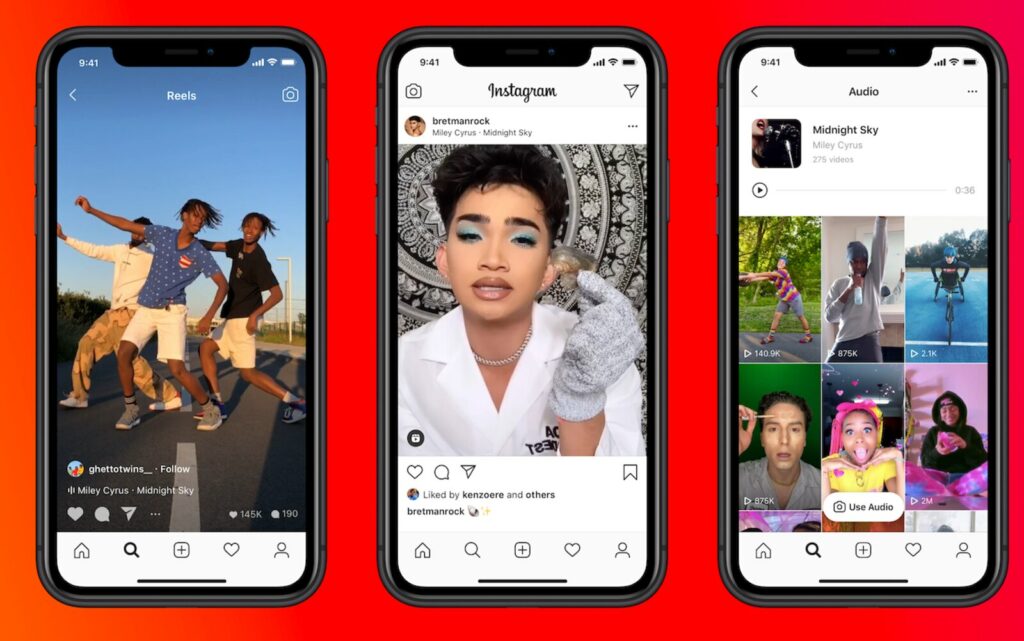
It’s no secret that Meta has dominated the social media space with the likes of Facebook, WhatsApp, and Instagram. However, TikTok’s resurgence meant that Instagram played catch-up with its feature, Reels. Therefore, if TikTok were to be banned, Instagram could be the alternative. While Reels is similar in layout, its availability in the app becomes a huge advantage. Additionally, Reels has also created a niche with a culture of interesting comments and content.
In terms of revenue, Instagram has recently introduced a payout feature, though it’s currently available on an invitation basis only. However, it’s also important to note that Instagram offers higher payouts for a million views, ranging from $500 to $10,000, depending on the engagement.
| Pros | Cons |
|---|---|
| Baked right into the Instagram app | Frequent layout changes |
| Thriving community of creators and audiences | Monetization is currently invitation-based in many countries |
| Backing from Meta |
2. YouTube Shorts
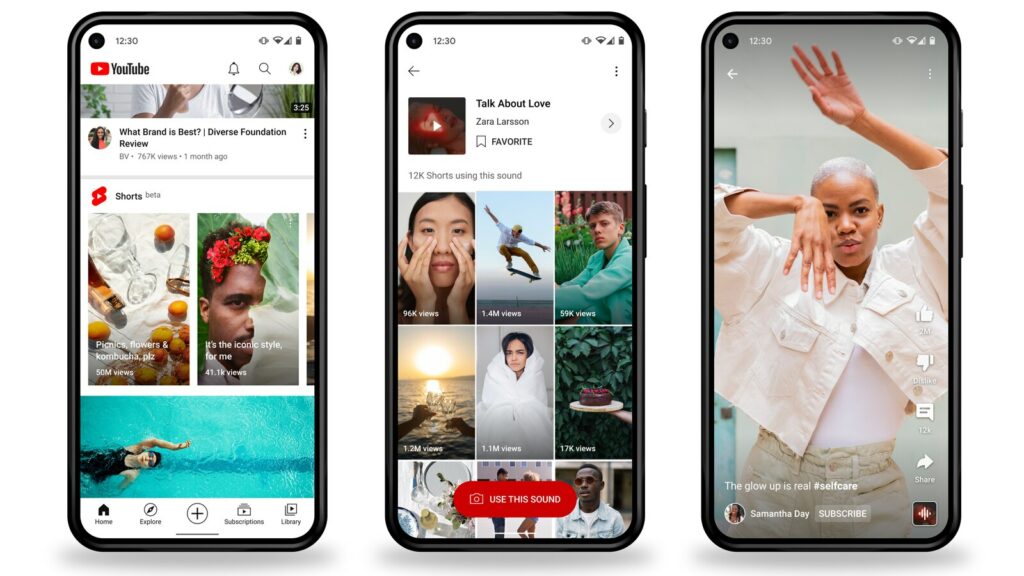
YouTube has forever been the go-to place for videos with a healthy creator economy and viewership. However, with the explosion of TikTok, YouTube introduced Shorts, a short-form video section baked into the YouTube app, allowing users to browse content without any hassles. One of YouTube’s biggest advantages lies in its creators, who can easily repurpose longer videos into Shorts for their audience. Additionally, YouTube has rolled out several features and tools to help creators edit their Shorts effectively.
However, YouTube’s revenue program has stricter requirements. Creators need at least 1,000 subscribers and 10 million views on Shorts in the last 90 days to qualify. Furthermore, YouTube pays $50 to $70 for a million views.
| Pros | Cons |
|---|---|
| Biggest audience and creators | Relatively lower payouts |
| Easy repurposing of longer content |
3. Snapchat Spotlight
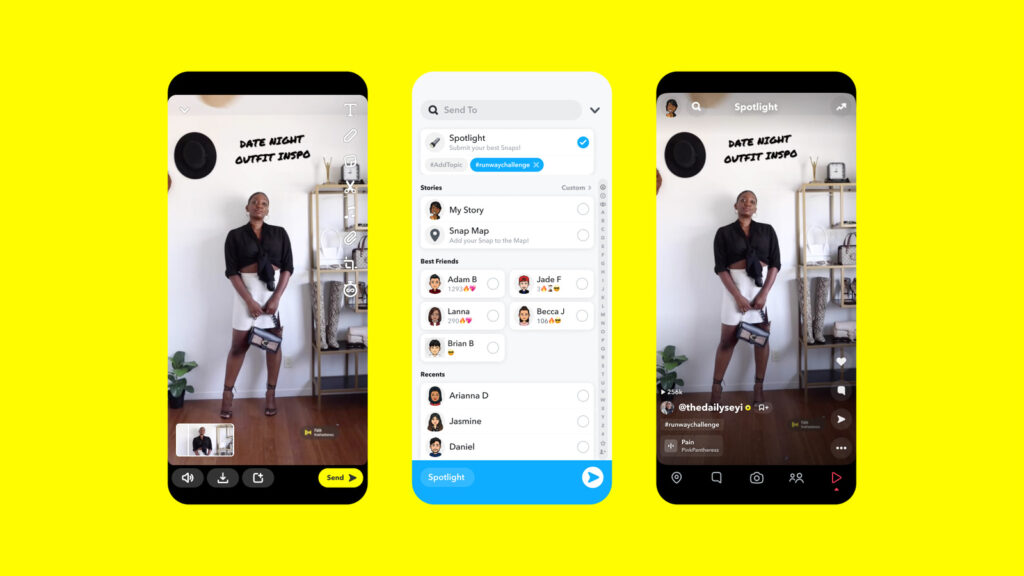
It’s safe to assume that Snapchat is the most popular social media platform among teenagers, who also happen to be the primary consumers of short-form content. Additionally, long-time users would know that Snapchat’s history of short videos spans over half a decade, making its Spotlight feature a strong contender to challenge TikTok’s dominance. The Spotlight section allows users to discover and engage with their favorite content creators.
In terms of revenue, Snapchat doesn’t have a fixed pay rate for a million views. Instead, it pays between $0.01 to $0.10 per stream, depending on audience demographics and engagement metrics.
However, there’s a challenge: public perception. Many associate Snapchat primarily with sending snaps and chatting with friends. Therefore, shifting towards a short-form video platform poses difficulties for the company, especially considering the app’s already cluttered user interface.
| Pros | Cons |
|---|---|
| Oldest short-form video platform | App interface is cluttered |
| Thriving community of creators | A lot of ads |
| Good monetization options |
4. Likee
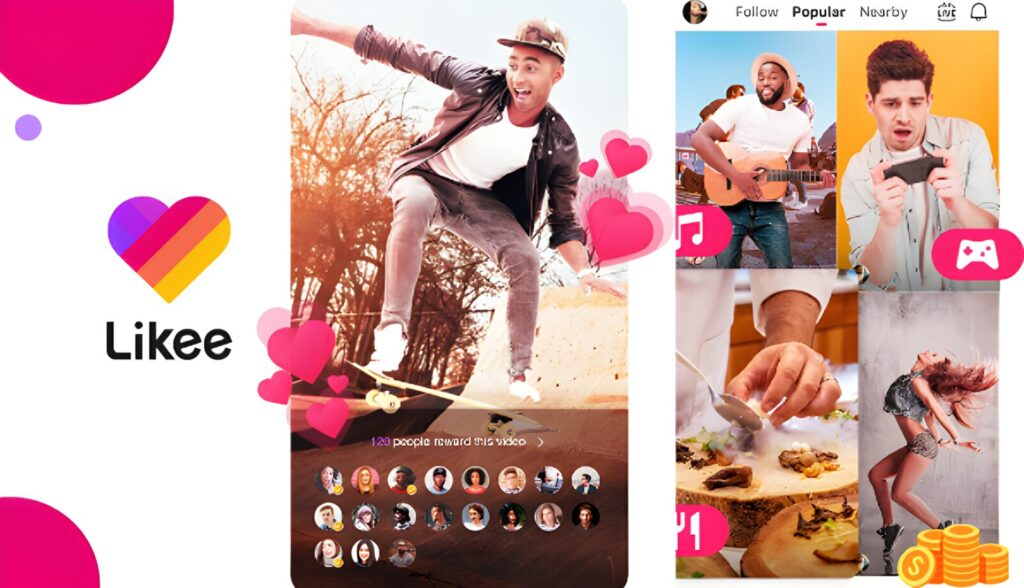
Moving on from major social media platforms, next up is Likee, an emerging contender in the short-form video space. Likee, while similar to TikTok in layout, differentiates itself by focusing more on music, boasting a diverse collection of songs for creators to choose from. In terms of revenue, Likee categories its creators into three types:
- K1 Crowns: Creators earning $400 or higher.
- K2 Crowns: Creators earning $200 or more.
- K3 Crowns: Creators earning $50 or more.
| Pros | Cons |
|---|---|
| Growing community of users | Limited revenue options |
| The best music selection | Relatively new |
5. Triller
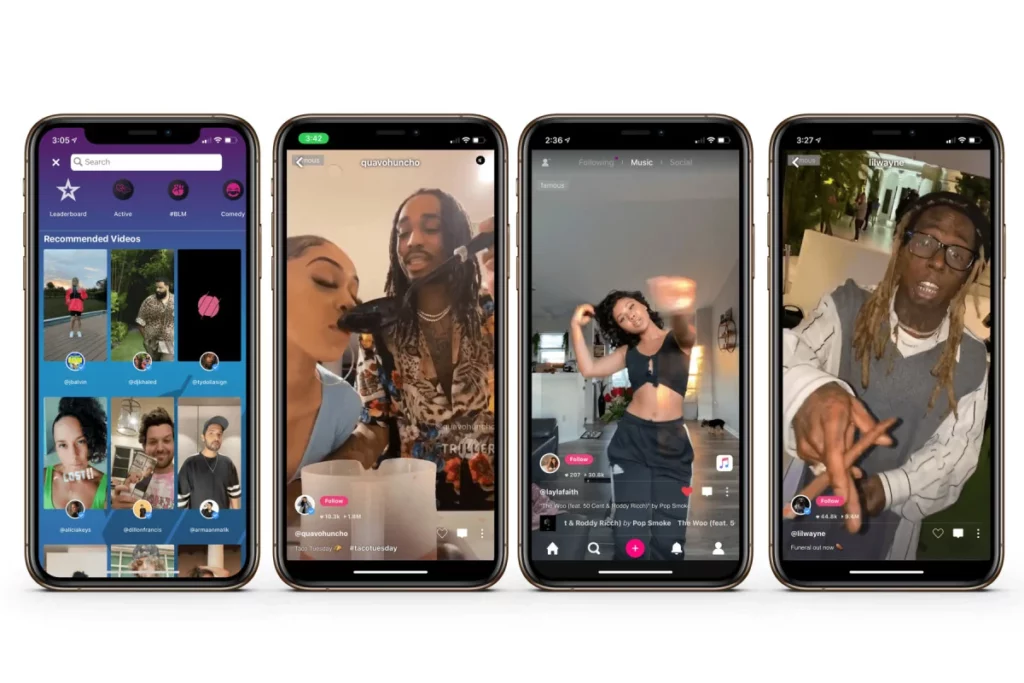
Triller has experienced significant growth in recent years, largely due to the presence of celebrities on the platform. Beyond its celebrity appeal, Triller offers a user-friendly interface reminiscent of TikTok, featuring a familiar home feed layout. Additionally, the app includes a category section, allowing users to explore content across various genres such as sports, comedy, art, and more.
Unfortunately, Triller lacks a monetization system, meaning users cannot earn revenue directly from their views. However, the company is working on a new feature that would enable creators to receive tips from users during live streams.
| Pros | Cons |
|---|---|
| Influx of celebrities | No monetization option |
| Similar layout to TikTok | |
| Categories for users to choose from |













